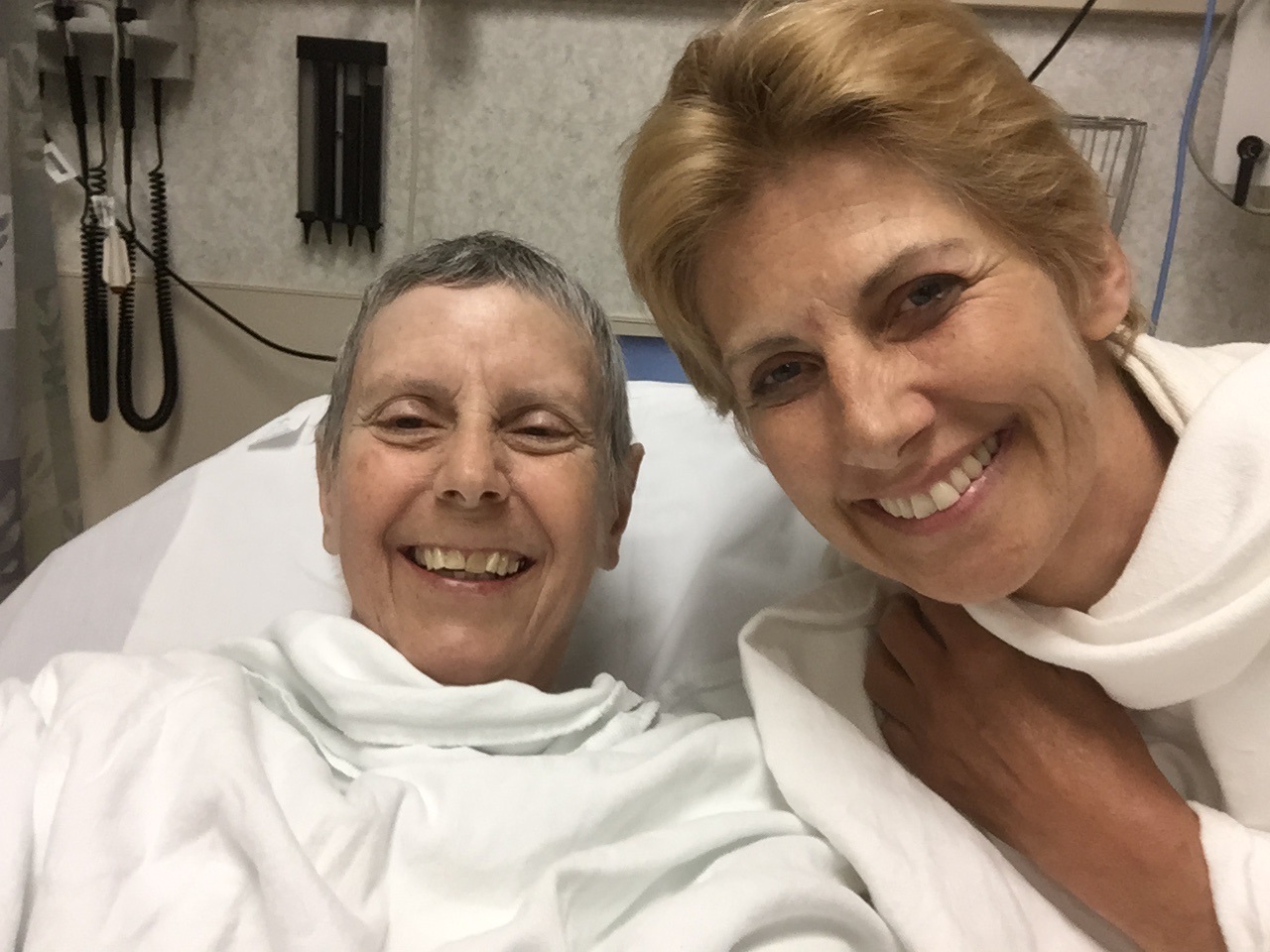Widow of First-Known Person to Use D.C. Death with Dignity Act Blasts House Committee for Passing Rider to Repeal Law
Spending Bill Also Includes Unprecedented Rider to Prevent D.C. Council from Re-Passing Law
Jul 13, 2023

D.C. Death with Dignity Act advocate Mary Klein and her wife Stella Dawson in March 2018
The widow of the first-known person to use the D.C. Death with Dignity Act sharply criticized the House Appropriations Committee for passing a D.C. spending bill Thursday with an unrelated policy rider to repeal this law that gives terminally ill D.C. residents the option of medical aid in dying (see page 6 of bill summary).
The rider also would prevent the D.C. Council from re-passing the law again, an unprecedented congressional power grab (see page 209 of bill text). The D.C. Council approved the Death with Dignity Act by a veto-proof 11-2 vote in November 2016. The law took effect in February 2017.
“Mary Klein, my wife and partner of 37 years, died in 2018 after acute suffering from ovarian cancer, including multiple surgeries, chemotherapy treatments and uncontrollable pain,” said D.C. resident Stella Dawson. “She passed peacefully at home in my arms after taking aid-in-dying medication, thanks to the D.C. Death with Dignity Act. Mary lobbied the D.C. Council relentlessly for passage of the medical aid-in-dying bill in 2016. Mary then lobbied Congress in 2017 to prevent it from overturning the law. I promised Mary I would uphold her legacy. I urge Congress to prevent this attack on the bodily autonomy of terminally ill D.C. residents and the sovereignty of the D.C. Council.”
Previously, the House Appropriations Committee had approved a D.C. spending bill to repeal the D.C. Death with Dignity Act in 2017 and 2018, but the full Congress did not include the rider in the final D.C. spending bill in either year. This year is the first time the committee’s D.C. spending bill rider also would prevent the D.C. Council from re-passing the law if Congress repeals it.
“Mary Klein was the face of the campaign to pass a medical-aid-in-dying law in our nation’s capital. We would not have succeeded without her fierce advocacy,” said Donna Smith, D.C. campaign director for Compassion & Choices. “In Mary’s honor, we will work side-by-side with D.C. Congresswoman Eleanor Holmes-Norton to defeat this unprecedented anti-D.C. home rule policy rider. Part-time D.C. residents in Congress have no right to dictate the end-of-life care decisions of full-time, terminally ill D.C. residents.”
Two-thirds of Washington, D.C. residents (67%) support the end-of-life care option of medical aid in dying, according to a 2015 Lake Research poll.
A 2021 survey by a top-rated, multi-state pollster, Susquehanna Polling & Research, shows two-thirds of U.S. residents (67%) personally want the option of medical aid in dying, including 68% of Republicans and 70% of Democrats, and at least six out of 10 Americans (61%-79%) in all six regions of the country.
In addition to Washington, D.C., 10 states have authorized medical aid in dying as an end-of-life care option for terminally ill adults: California, Colorado, Hawaii, Maine, Montana, New Jersey, New Mexico, Oregon, Vermont, and Washington.


